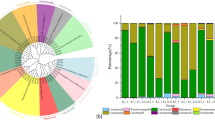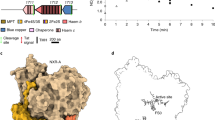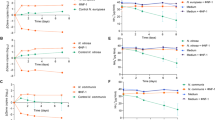Abstract
THE nitrifying bacteria, like the sulphur microorganisms, have been studied almost entirely from a physiological aspect. With the exception of Nitrosomonas and Nitrobacter, the descriptions of the various genera have been copied from those given by the original investigators1. This has led to the description of nitrifying genera with the morphological characters of Myxobacteria, with which the cultures were, apparently, contaminated.
This is a preview of subscription content, access via your institution
Access options
Subscribe to this journal
Receive 51 print issues and online access
$199.00 per year
only $3.90 per issue
Buy this article
- Purchase on SpringerLink
- Instant access to full article PDF
Prices may be subject to local taxes which are calculated during checkout
Similar content being viewed by others
References
Winogradsky, S., “Microbiologie du Sol” (Masson, Paris, 1949).
Bergey, “Manual of Determinative Bacteriology” (6th edit., 1948).
Winogradsky, H., Ann. Inst. Pasteur, 58, 333 (1937).
Imsenecki, A., Nature, 157, 877 (1946).
Kingma Boltjes, T. Y., Arch. f. Mikrobiol., 6, 79 (1935).
Hanks, R. H., and Weintraun, R. L., J. Bact., 32, 653 (1936).
Author information
Authors and Affiliations
Rights and permissions
About this article
Cite this article
GRACE, J. Myxobacteria Mistaken for Nitrifying Bacteria. Nature 168, 117 (1951). https://doi.org/10.1038/168117a0
Issue date:
DOI: https://doi.org/10.1038/168117a0



